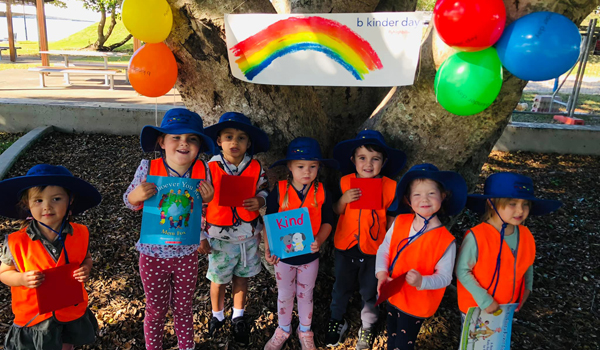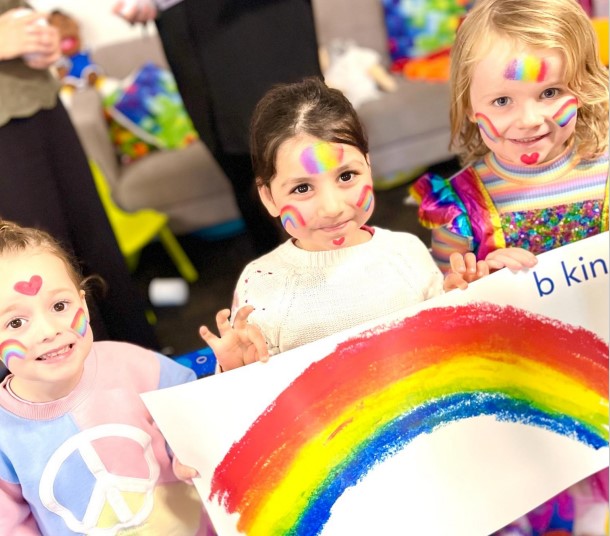prevention and early intervention

Children today are inundated with information on topics like anxiety, depression, bullying, suicide, self-harm, and other mental health issues. There is a glaring absence of positive messages. Instead of band-aiding these problems the b kinder foundation is proactively working on preventing them from occurring.
Through prevention and early intervention our evidence-based well-being programs help children in their pivotal years by encouraging them to become kinder, more empathetic and more compassionate. With the help of teachers and psychologists we have put together unique, positive, interactive workbooks that embed the social, emotional and learning units which incorporate the core values with a particular emphasis on kindness.

The b kinder workbooks and programs set primary school children up to lead their best possible lives throughout childhood and into their teenage years. Children relate to the b kinder workbooks as they are predominantly written by 12 year old Billie Kinder. The workbooks empower and inspire children while initiating discussions surrounding emotions that can be difficult for the young to communicate. The program aims to build empathy, compassion, resilience and confidence while encouraging students to identify and develop their strengths, to self-regulate their emotions and to make a difference through kindness.
Social impact reports on the b kinder workbooks show a substantial shift in children's wellbeing and are helping to reduce mental health issues, bullying and suicide.

There is a region in our brains known as the Cooperative Centre. It’s a part of the brain that allows us to positively collaborate with others and to be kind to one another. We are all born with this innate capacity for kindness. But, just like any part of the brain the Cooperative Centre is flexible. If it is used often enough, it is maintained, but if it’s not used, it will shrink away. Kindness is part of our nature, but we need to use it all the time to make kindness a habit. If we foster a culture of kindness, kindness will become a habit and the youth of today will grow into kinder adults.
We believe in a future where we can empower all children to make a difference through human kindness.
kindness facts
Kindness makes us healthier, happier and, according to science, it might even be contagious! Kindness is a natural human response that can flow naturally from even the youngest child and to ensure it stays with children throughout their early years and into adulthood, it should be nurtured, reinforced and celebrated.
Early childhood educators can promote kindness and caring behaviours among children by using everyday interactions as opportunities for teaching, modelling and rewarding. The positive effect of kindness reinforces more kindness, reduces bullying and it feels good.



